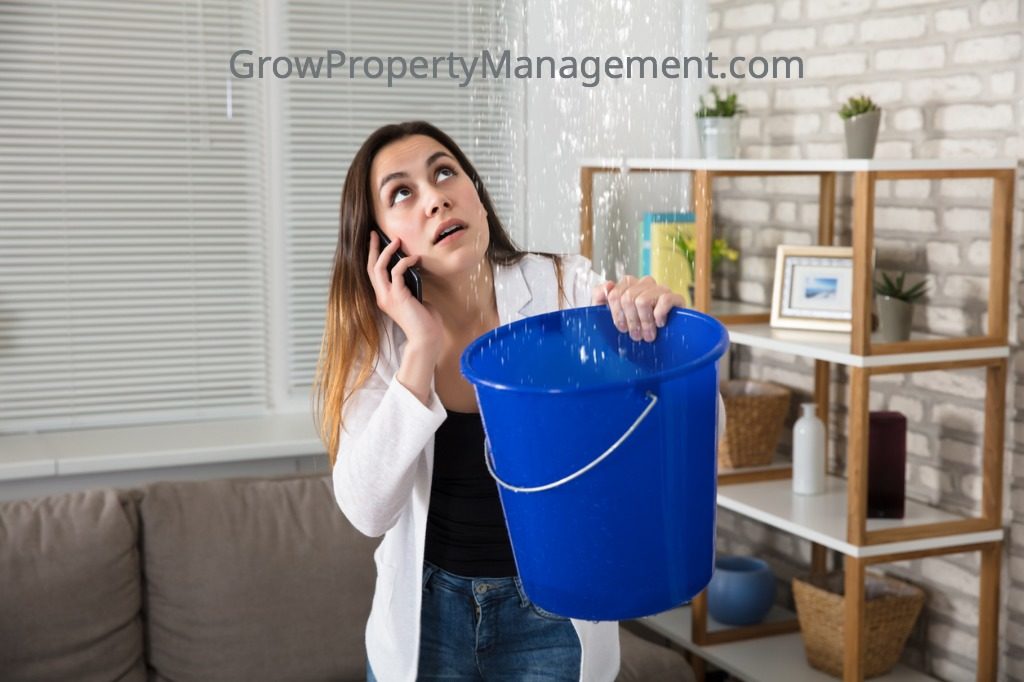
How to Reduce Water Damage in Your Rental Property
Water damage caused by flooding or leaky faucets or pipes or even tenant-caused can mean extensive and often expensive repair works that can really destroy your rental property investments’ bottom line.. Mitigate the problem with the following.
The sump pump stopped working after a power out in your Philadelphia neighborhood, and now the basement is reeking with floodwater from the last downpour. Or your tenant forgot to close the washer door while the water was running. Now the laundry room, kitchen, and living room are soaked with soapy water.
Whether the water damage was due to an act of nature or rental tenant negligence, you can minimize the property damage by taking some steps and avoiding others.
Block the Water Source Coming Into Your Rental Property
In the confusion of the moment, shutting off the source of the leaking water might be the last thing on your mind as you race to salvage items in the home. If the water is coming from a leaking faucet, a leaking appliance such as a washer or fridge, or an overflowing toilet, locate the water shutoff valve of the fixture or appliance and stop the flow. Otherwise, find the home’s water main shutoff valve.
If the water is coming from a failed sump pump, make sure the device is still in place, and the electrical breaker has not tripped. Before thinking of replacing the pump, check whether the float is stuck or the drain is clogged.
Protect the Property
Once you have stopped the water, the next step is to ensure that your rental property does not suffer further damage. Move valuables and light furniture out of harm’s way and use buckets to collect water in places with active leaks. Some areas may require tarps.
Contact the insurance company to report the incident, and have your tenant do the same (Hopefully you required them to have Property Rental Insurance), so that they can quickly dispatch a water remediation company to your home to prevent mold growth and forestall more damage.
If the property insurance company is not available or the time is not convenient, call a water remediation company by yourself. The insurance adjuster will be glad you did, and you would have done it anyway if you didn’t have insurance coverage.
If you don’t like the remediation company the insurance company hired, you have a right to choose one. There are many remediation providers on Angie’s List.
Hire a Professional to Mitigate the Damage to the Rental Property
No matter how hard you try, the chances are that you will miss some puddle of water in your property. The problem is that if water or dampness is left in any part of the house, even if negligible, it can quickly become a serious mold problem unless it is appropriately handled.
If the walls, flooring, ceilings, or cabinets were exposed to the water, it’s advisable to call a moisture inspection specialist to conduct a thorough assessment of the building.
A wet flooring or damp drywall might not seem dangerous, but that sign might be hiding large amounts of water and promote mold growth.
Call a water remediation provider if you are not sure. Especially when dealing with a rental. It’s not uncommon for tenants to make claims against the rental property owner.
It’s better to pay a small service charge to have the home inspected than to cough out thousands of dollars for expensive repairs or mold remediation.
Avoid The Following
Never plug or unplug electrical appliances if they are wet. It’s extremely dangerous to operate electrical appliances while standing on wet carpets or floors, especially tile or concrete floors. It is also not advisable to mop up the water with your household vacuum cleaner.
Destructive actions such as drywall demolition or carpet removal should be left until a professional conducts a detailed damage assessment.
Many tenants and rental property owners, unwittingly destroy expensive items such as carpets and furniture, not knowing that some of these are salvageable. Old houses may be contaminated with lead and asbestos, and the tenant or homeowner will be exposing himself or herself to unnecessary danger by attempting to remove damaged items.
Insurance Coverage
What does your insurance cover regarding water damage? The standard homeowner’s and renter’s insurance covers damages caused by wind-driven rain, burst pipes, and ice dams on the roof, according to the Insurance Information Institute.
However, only a few rental property policies cover drain backups and sewer. If your plan does not cover sewer damage, you can buy a sewer backup package for your policy for an additional $50 per annum, although what the policy will cover depends on the carrier. It’s important to review your insurance with your agent every year to know what it covers.






